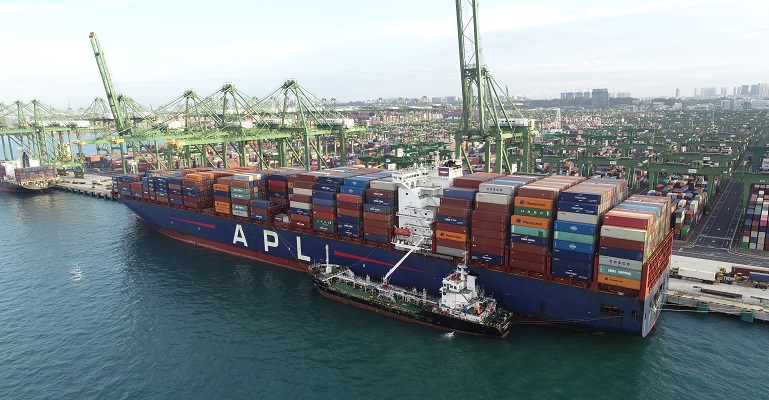Singapore-flagged vessels with engines capable of using LNG and other low carbon fuels will enjoy a 50% reduction in annual tonnage tax.
In circular setting out revisions Green Ship Programme GSP for Singapore-registered ships the Maritime & Port Authority of Singapore (MPA) lists out three tiers of discounts on initial registration fees and tonnage tax based on how much vessels can exceed emission reduction targets set out by the International Maritime Organization (IMO).
The revised discounts on fees apply from 1 May 2022 to 31 December 2024.
The highest tier of discounts is for owners taking the risk on investing in vessels that can operate on zero carbon fuels such as ammonia and hydrogen as their primary fuel. Such vessels would receive a 100% reduction in both initial registration fees and annual tonnage tax. Very few zero-carbon fuel vessels currently exist and would likely the part of pilot programmes.
Applying to a wider number of owners is the second tier of discounts which covers Singapore-flagged ships that use LNG or fuels with a conversion factor lower than that of LNG. The conversion factor is based on fuel consumption and CO2 emission and includes fuels such as bio-LNG, bio-methanol, and bio-ethanol.
Vessels capable of using fuels in this category will receive a 75% reduction on registration fees and 50% discount on annual tonnage tax. For ships already flagged with the Singapore registry only the reduction in annual tonnage tax will apply.
Likely to cover the widest range of vessels is the third tier for vessels that exceed the IMO’s phase 3 EEDI targets by 10% or more. These vessels will receive a 20% reduction in tonnage tax, and a 50% reduction in initial registration fees if newly joining the registry.
“The key principle of the GSP is to reward shipowners who voluntarily adopt solutions that enable ships to exceed environmental regulatory standards set by the IMO,” the MPA circular said.
To be eligible for the discounts owners need to submit documentary evidence for the EEDI criteria this would be in the form of the International Energy Efficiency Index, and for low and zero carbon fuels the International Air Pollution Prevention certificate and Engine International Air Pollution Prevention certificate.
The Singapore Registry of Ships is the fifth largest ship registry in the world with more 4,400 vessels exceeding an aggregate of 96m gross tons.
Source: Seatrade Maritime News






